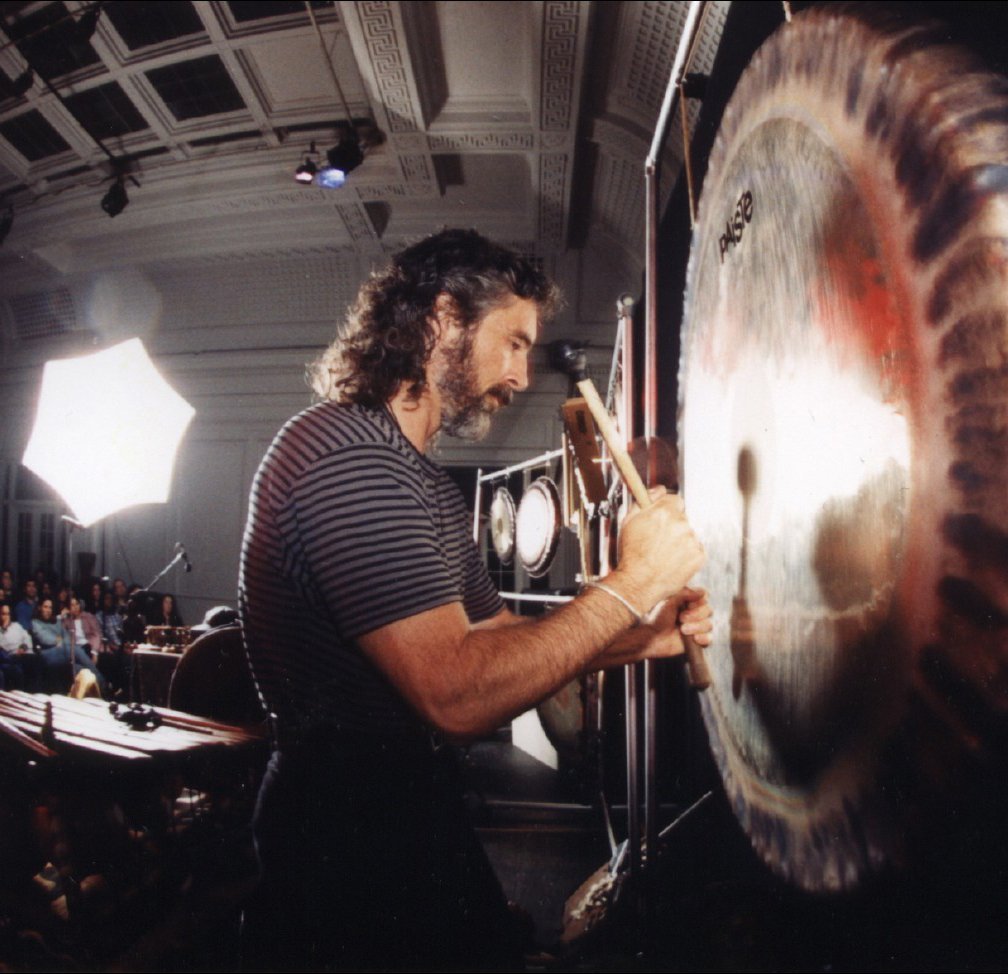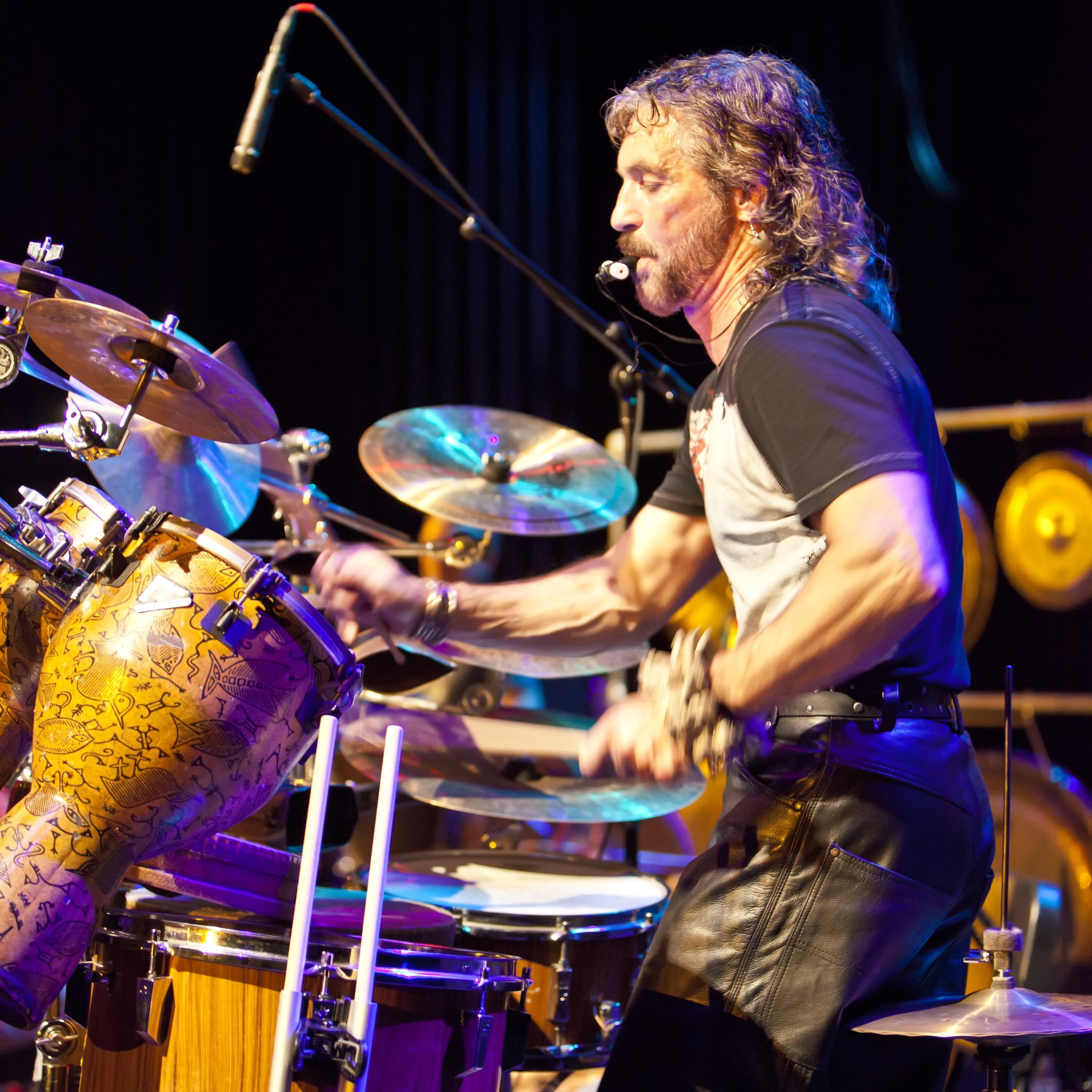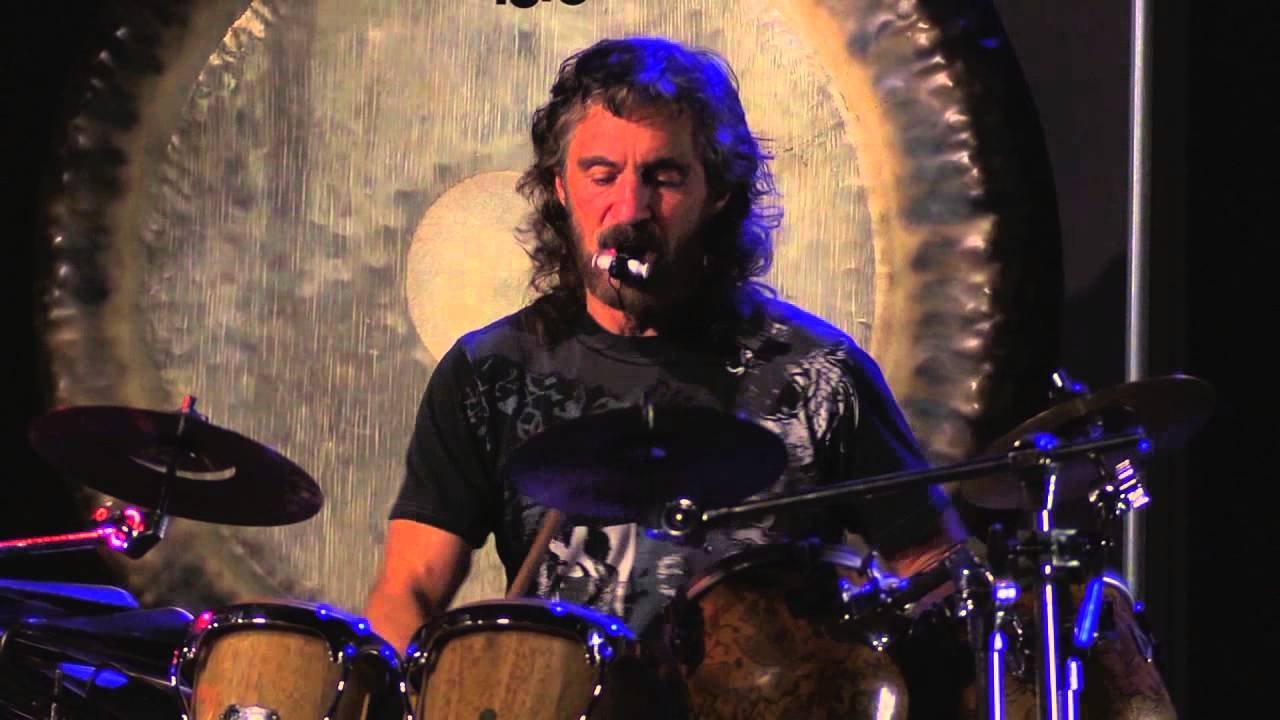Click on Photos to download
Tony Vacca is an innovative American percussionist with Jazz and World Music roots going back to the 70’s. Over the course of his career, he has made a habit of pushing the already adventurous conventions of World Music into new territory, both as a soloist and as the leader of his World Rhythms Ensemble. He is part of a wave of 21st century musicians whose work has fueled the rediscovery of the power of the drum, and the power of music to build global common ground. His twenty-one trips to West Africa have contributed to his unique approach to playing the balafon, and to his depth of knowledge regarding African and American musical traditions.
All this is part of the reason he has recorded and/or performed with such a wide range of musicians. These include pop icon Sting, Senegalese Afro-pop star Baaba Maal, Jazz trumpeter and World Music legend Don Cherry, the undefinable Yusef Lateef, poet Abiodun Oyewole of The Last Poets, Senegalese Hip-Hop stars Bideew Bou Bess, as well as Gokh-bi System, and Massamba Diop, Senegalese master of the tama or talking drum.
In addition to a busy performing and teaching schedule, Vacca's current projects include new works by his longstanding group, World Rhythms; ongoing works with Beat poet laureate Paul Richmond and Do It Now, and the release of two in-concert video sessions by Tony’s new group, Fusion Nomads, called “Live at The Shea.” Filmed and recorded at the beautiful Shea Theater in Turners Falls, Massachusetts, it features Avery Sharpe, John Sheldon, Charles Langford, and Derrik Jordan. And this just in... a new collaborative recording by The Senegal-America Project to follow up on their recent "Evolution of The Vibe.” That original recording featured Abiodun Oyewole of The Last Poets, Brooklyn poet extraordinaire Ms. Tantra Zawadi, electric violinist Derrik Jordan...and Senegalese performers Bideew Bou Bess, Gokh-bi System, Massamba Diop, Barou Sall, and Djibril Ba. Their first session for this new recording was November 1, 2023, with many of these same performers involved. Stay tuned.
Tony Vacca's solo performances are a nearly non-stop athletic spectacle of percussion music and spoken word. He incorporates percussion instruments from a world of traditions that includes African, Caribbean, Asian and Middle-Eastern influences, to which he adds some of his spoken word and rhythm poetry.
"Once I realized just how much of the music was all about the drama of story-telling I began to create and include Spoken Word in my concerts. This really challenged me to go beyond sound and find my voice in the world of language. it became part social commentary, part sooth-saying and part spiritual journey. I suppose it's really a return to music in it's most ancient setting."
Using giant West African balafons, over twenty incredible Paiste gongs, djembe, djun-djun, talking drums and an outrageous percussion drumset, Tony Vacca has created a unique blend of rhythm, word, and drum that has come to be the signature of his work. Alan Green of Music Revue Magazine said "Tony Vacca certainly walks the walk. He is more than a brilliant musician, he IS music. Even his sweat seems to fall off him in time." James Heflin of The Valley Advocate wrote, "When percussionist Tony Vacca plays, you become aware that body parts have started moving without your permission; rhythms and melodies tumble out with, on the one hand, an accessible groove, on the other hand, an ever-shifting complexity. Latch onto a 4-beat pulse, and you'll notice that it's not the only thing happening- there's a 6-beat pulse riding along, or a cascading melody that comes around at unlikely spots in the bigger pattern."
One of the aspects of Tony's music that has brought him a lot of well-earned attention is his innovative use of the traditional giant xylophones of West Africa. Where most players who study the balafon from outside of Africa concern themselves with the folkloric, traditional songs and dances, Vacca has taken a different approach.
"A lot of folks think that I play traditional African music, or that what I play on the balafon with my ensemble is traditional to the balafon. It's easy for me to see how they get that impression. But actually, I'm immersed in the possibilities of this extraordinary instrument, and how it can be used in the confluence of traditions that makes Jazz and World Music so powerful. Part of every tradition is innovation, and as we practice our traditions and challenge ourselves, we change these traditions, and ourselves as well.
I've traveled to Senegal, Mali, Cote Ivoire and Burkina Faso; I've worked with balafon makers and players to learn about the physical qualities of the instrument, and about the spiritual power of it's music. I've studied with various players, and learned some of their songs. But all of this was simply a path towards how they use the instrument and the music in the culture-building process. The athletic playing techniques, the polyrhythms, and the spectacular presentation are all part of the attraction of the music, but for me, it really all comes down to the transmission of knowledge through the development of a personal and universal form of musical storytelling."
https://tonyvacca.bandcamp.com
IG: https://www.instagram.com/tonyvacca.music




